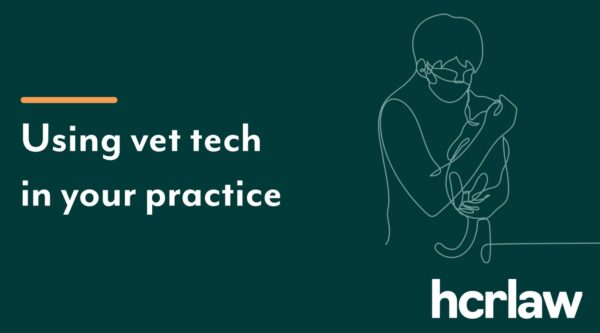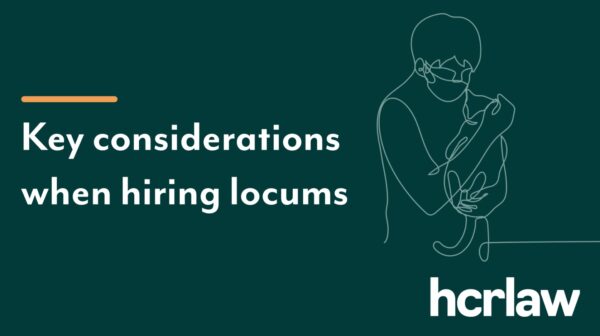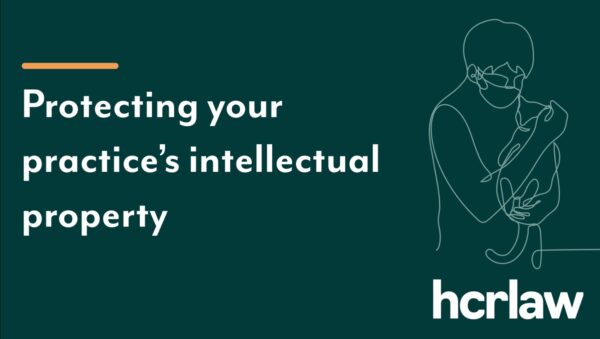

The Care Quality Commission’s (CQC) focus on ‘Smarter Regulation’ in its new strategy includes a risk-based model of inspection. This model could lead to a much greater focus on GP practices that are perceived as ‘risky’ by the CQC, which could in turn lead to an increase in enforcement action.
We are already seeing an increase in providers seeking advice on CQC enforcement action. I’ve previously written about the implications of Warning Notices for GP’s and this article examines a different type of CQC enforcement action – the ability of CQC to vary existing conditions, or impose new conditions, of registration on a GP practice.
The CQC does this either by serving a Notice of Proposal and/or a Notice of Decision to vary or impose conditions of registration. These can range from conditions requiring the practice to do or not to do something (for example, review records or submit monthly action plans) to varying conditions to remove locations, which will effectively serve to cancel that location’s registration with the CQC.
Changing conditions of registration
In order to impose, vary or modify conditions of registration, CQC must issue a notice to the practice in writing. This can either be served under its general powers by way of a Notice of Proposal (NOP) or, if CQC believes that unless it takes prompt action any person will or may be exposed to the risk of harm, it can use its urgent procedures by issuing an urgent Notice of Decision (NOD).
If an urgent NOD is issued, the new condition will take effect immediately from the date the notice is served on the practice and it can be an offence, liable to prosecution, if the GP practice does not comply with those conditions.
Practices have 28 days to appeal to the Tribunal against any changes to conditions imposed by an urgent NOD and any appeal will be subject to the ‘fast-track’ arrangements.
If CQC seeks to impose a condition via the non-urgent method of issuing a NOP, the NOP will set out the proposed changes to the conditions of registration including the reasons for the change. The provider then has 28 days to submit representations to the CQC challenging the notice.
The CQC will then issue a NOD indicating whether or not it accepts the provider’s challenge. If the NOD indicates that CQC does not accept the challenge and the provider continues to disagree with regulator, they will then have to appeal to the Tribunal.
NOPs and NODs issued through the general procedures will not take effect until the end of a failed appeal to the Tribunal, should a provider choose to challenge the either of the notices.
The CQC must employ a proper assessment of risk when deciding whether to impose a condition and consider whether a breach leading to a potential prosecution or fine is the appropriate and proportionate response.
Challenging an appeal
Proposed conditions can often be extremely onerous, open ended and/ or difficult to measure. In these circumstances we would advise that conditions can and should be challenged. If not, the condition could remain indefinitely on a provider’s registration with the threat of prosecution for failure to comply.
Accordingly, if a GP practice does not agree with a proposed change to their conditions of registration, they should use the appropriate appeals mechanisms for challenge. We have experience of successfully challenging these decisions.
For example, we were instructed by a GP practice when it was served an urgent NOD under Section 31 of the Health and Social Care Act 2008 by the CQC to impose five conditions on their registration, which took effect immediately. These conditions were particularly onerous and they would have put considerable strain on the practice.
We assisted the practice to lodge an appeal to the NOD, which challenged the accuracy of the CQC’s alleged findings and the proportionality of the decision to issue the notice. This was an expedited appeals process which meant that the case came to a First Tier (Care Standards) Tribunal hearing within two weeks.
We assisted the partners in preparing witness statements addressing the various allegations and conditions. Three days prior to the hearing taking place, the CQC carried out another inspection of the practice and made an open offer to settle the matter by removing three of the imposed conditions and amending the other two conditions.
The two remaining conditions were far less onerous than the original conditions and a joint application to the Tribunal asking for the appeal to be disposed of on the basis that the parties had reached a settlement was agreed.
If you require assistance or advice in relation to challenging CQC conditions or other enforcement action, our specialist solicitors can help.










